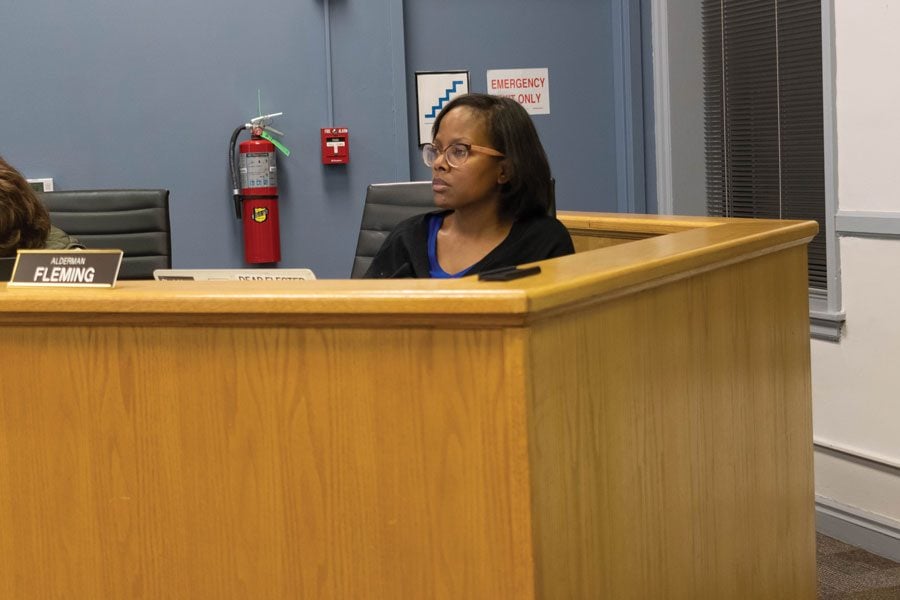Aldermen evaluate language accessibility in city programs
Alison Albelda / Daily Senior Staffer
Ald. Cicely Fleming speaks at City Council. Assistant to the city manager Paulina Martinez presented the current plan for the Limited English Language Access Policy, which will be implemented in 12 months.
February 4, 2019
Aldermen discussed the Limited English Language Access Policy at a Human Services Committee meeting on Monday, aiming to help limited English proficient (LEP) individuals access more city programs.
Expected to roll out in a year, the plan will provide LEP residents with translated documents and professionally-trained interpreters. Paulina Martinez, assistant to the city manager, said she will lead the effort to draft a language access plan and convene a group of staff members from all departments to determine necessary action.
The proposed plan calls for these staff members to participate in an analysis recommended by Title VI in the Civil Rights Act of 1964, Martinez said. According to city documents, the participants will consider four factors in their assessment: the number of LEP individuals, how often they need city services, how important the programs are to this population and what resources are available to them.
Ald. Cicely Fleming (9th) said 12 months seems like “a very long time” until this policy is implemented, considering how many residents are currently unable to communicate with their government.
Until then, the city will continue to use Language Access Guidelines from 2017, providing translations for paperwork with financial ramifications or legal implications, according to city documents.
“I, as well as other people, have people in my ward who do not speak English, and there was no staff person to go to or materials that you might have at your ward meeting in Spanish,” Fleming said. “We had a couple of Spanish speakers come here (in the past) to speak to us in Spanish, so we can understand the difficulty of not understanding the language.”
Martinez said other communities have taken nine to 18 months to create a written policy, which is an extra step she wants to take.
In order to create a comprehensive plan, Martinez said city staff need to determine which vital documents need to be translated. She added that this process can be “time-consuming and expensive.”
“We really want to be thorough about how we assess what our needs are,” Martinez said.
While they are formulating the policy, Fleming wants the city to “keep pushing forward,” because there are residents who need services now.
Although there are members of staff who currently assist LEP individuals, services are inconsistent throughout the day, deputy city manager Kimberly Richardson said.
“It is very much on an as-needed basis,” Richardson said. “We are trying to change that to be more of a consistent process … and understand that we get to have a multifaceted outward-facing staff that can assist with these kind of situations.”
Richardson said that residents can also call 311, which provides translation services and a language line that offers languages other than Spanish. As the population of multilingual individuals increases, Richardson said the city wants to ensure that everyone receives the same level of service.
“The community we are in is one of diversity, and language is part of that diversity,” Richardson said. “Sometimes we take for granted that English isn’t everyone’s proficient language, and we want to make sure that everyone who comes and interacts with our city services feels that they are welcomed.”
Email: [email protected]


